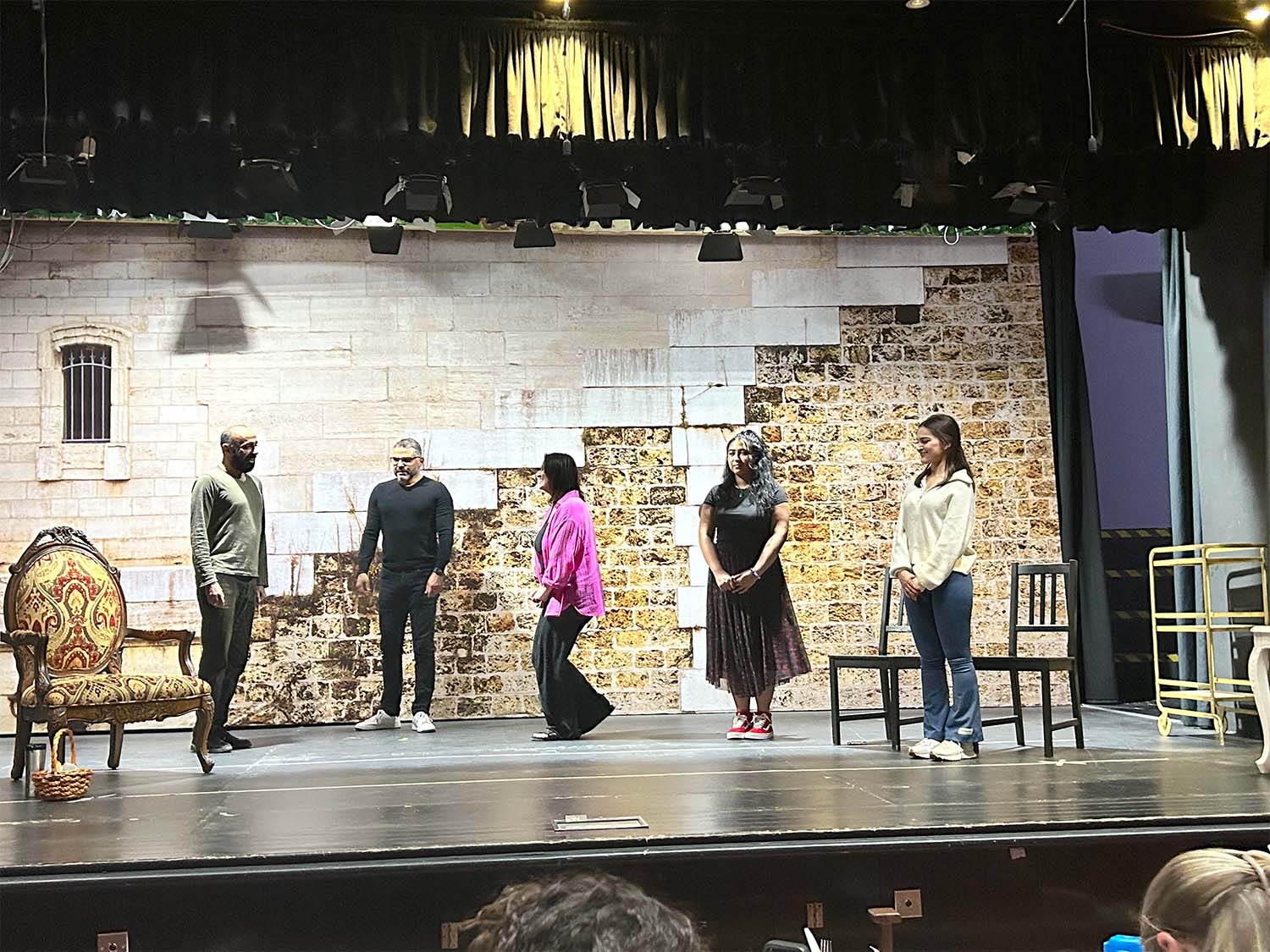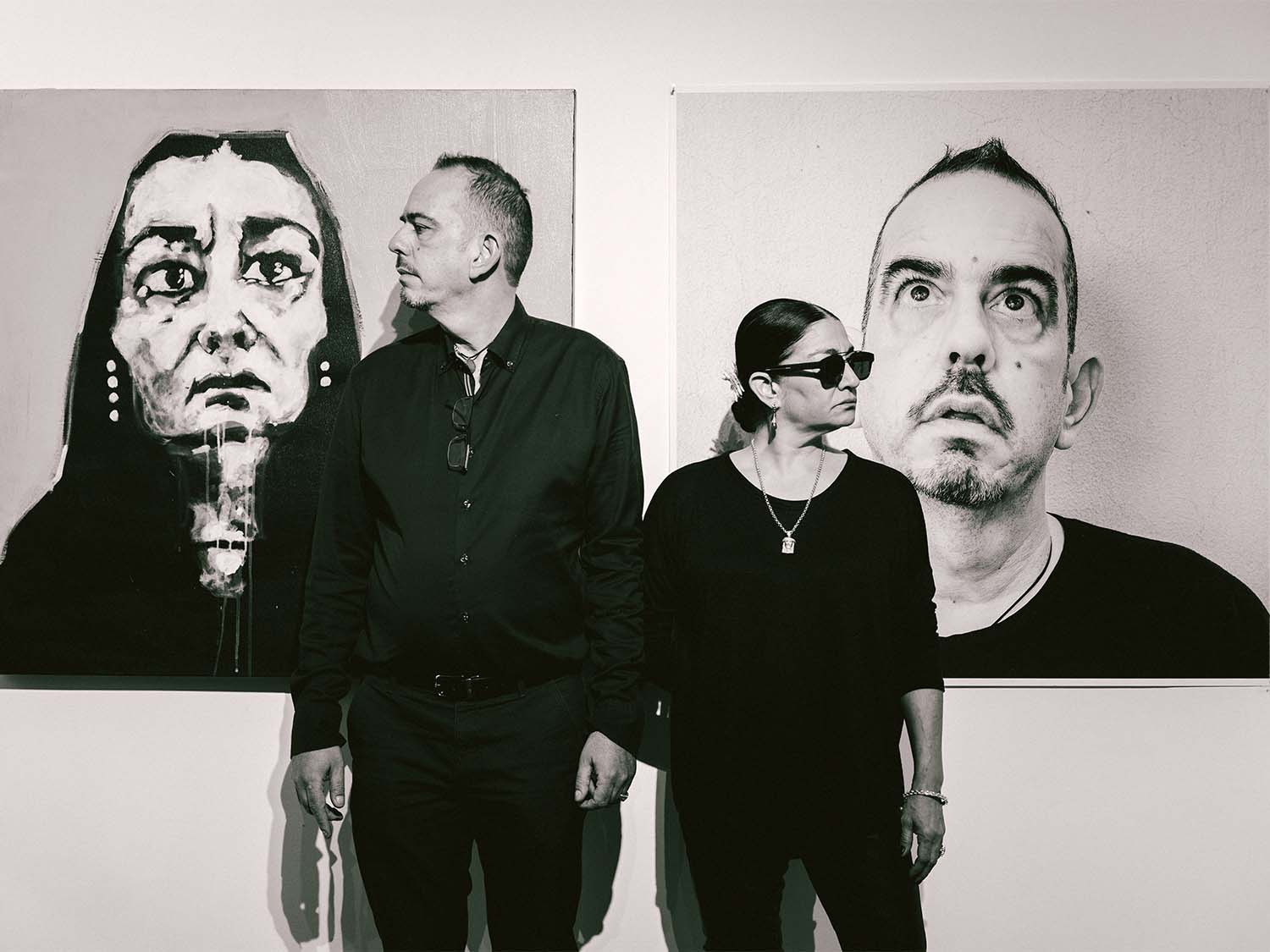HEAR HIM OUT

Not ones to take the words “future of the Bahraini rap game” lightly, FACT set out to learn more about hip-hop sensation Wrista, only to discover a young artist with an urgent message. Listen in.
So asserts the song “Show Love” by Abdulrahman Al Sahaf, a.k.a. Wrista. The Bahraini hip-hop artist has already released several singles, acquired that coveted little blue tick on Instagram, and been described as everything from “living legend” to “the future of the Bahraini rap game”. Did we mention he’s only 21? But Wrista’s modesty is evident from the get-go.
“Comments and messages like that overwhelm me, they make me want to focus on making songs,” he says of the praise he garners on social media platforms. “Occasionally, I can be demotivated to release a song because of the number of views on my previous releases. I have over 36,000 followers on TikTok, but there, it’s a bit of comedy and music combined. People know me for acting, skits, the commercials I’ve done – and a little bit for music. But I want my fans to access at least two or three new tracks per month. That’s my aim.”
We sense a level of self-awareness as Wrista elaborates on the work ahead. “I’m not Jay-Z, I can’t afford to only drop a song once every other mont`h. If you’re trying to make it as an artist, you have to work three, four, five times harder because we’re living on an island. And at the end of the day, when you do have fans who vibe with your stuff, you want to keep them close.” The aforementioned “Show Love” dropped last month and speaks of the struggles faced by artists. “The song is about how we don’t receive enough attention, especially in the Middle East. It’s called ‘Show love’ because it’s about the lack of love we receive, despite the amount of love we give to the culture.”
” IT’S CALLED ‘SHOW LOVE’ BECAUSE IT’S ABOUT THE LACK OF LOVE WE RECEIVE, DESPITE THE AMOUNT OF LOVE WE GIVE TO THE CULTURE. “
Wrista has been rapping since he was 12 and is vocal about his observations. “What I’ve seen is that people are quick to share Drake’s latest post or The Weeknd’s new song. They’ll repost it, but even if I’m talented, they still see me as ‘that neighbourhood kid’ because I was there through their upbringing. They’re more reluctant to provide you with the support you need as an emerging artist.” So what are melophiles looking for?
“Commercial music works better in Bahrain. There are a couple of top artists out there, and a lot of their music is very commercialised,” he says, alluding to a couple of songs that look to fried snacks for inspiration. “They sing about standard stuff with a catchy beat,” he says matter-of-factly. “I’m not saying they can’t express themselves lyrically, they just know which formula works. Audiences aren’t really fixated on the whole substance thing, unless you’re an artist who’s established abroad. Oh, an interesting point here: Majid Al Maskati, who is signed to Drake, is from Bahrain. However, he didn’t accumulate his success while he was here; it happened in Canada.”
And is the country’s size a disadvantage? “Definitely,” he replies without hesitation. “You’d think it would be easy to grow in a place with a population of only 1.5 million, but it’s actually harder. Because once you filter out those who listen to rap, then filter out those who listen to rap in Arabic, you’re left with a minority. How will you market yourself to that specific niche?” Still, Wrista has built a reputation for singing about the raw and real (think: mental health struggles, misplaced love, and other hurdles). But it’s not just 2020 – and its many challenges – that prompted him to sing about such issues. He’s “The microphone has been a therapeutic tool since I first picked one up, so I was never fixated on the commercial side of making music.” Wrista reveals to us some of the hardships he faced at a younger age, all of which have moulded him into the artist he is today. “All those experiences, I channel through music. It’s my therapy, so I make sure my music consists of me.” Note to self: don’t expect to see a Maybach 57 or Ferrari 360 Spider make a cameo in his music videos anytime soon. “I will never contradict myself. If what I have is a Nissan Altima, then that’s what you’ll see in the video,” he says with a laugh.

“I don’t want to depict an image that’s not me.” While Wrista’s private struggles have long steered his identity as an artist, we ask him how the year – which continues to see the human race suffer collectively – has impacted his music. “Honestly, it has felt like a blessing in disguise. I work in TV, as a presenter and a voiceover artist, and it’s a very demanding field. But when quarantine kicked in and university moved online, I had so much more time, so I utilised it for music. I knocked out, something like, seven or eight songs in a matter of three days.” A self-proclaimed hustler, he’s done everything from sell beard oils to flip EarPods in his younger years to save up for music equipment. Having said that, Wrista is not one to evade unpleasant emotions, turning to sad music to counter sadness. “I know this sounds messed up, but it makes sense in my head,” begins his rationale. “When I’m low, listening to sad music makes me happier. I don’t want to force happiness by listening to happy music – it seems fake. Instead, I’ll accept it, and listen to R&B or cloud rap because sadness and sadness sort of cancel each other out.” Next up for the musician is the mid-October release of the “Left for Dead’ music video and a single titled “Battle Through Depression”, the latter of which is already making waves because of its subject matter.
“Many are relieved that someone within Bahrain is willing to speak about a topic as sensitive as mental health, especially considering the stigma around it in region,” he explains. Wrista feels that while the older generation is hesitant to address the topic, there’s a shift in mindset amongst the country’s youth. “Anyone born after 1998-ish, they feel comfortable speaking about it, especially on Twitter. This is a change I’ve only seen in the past two to three years.” As for the future of the local music scene? “It will remain undiscovered unless we do something as an audience. The future is in the listeners’ hands. Let’s appreciate our artists while they’re still here. It costs nothing to hit the like button or leave a comment,” he says emphatically. “As harsh as this sounds, there will be no future unless we cultivate an environment where like-minded creatives support other likeminded creatives because it’s terrible right now.
There are artists who refuse to share others’ songs but beg people to share their own. That needs to change. We need to uplift our artists before they find fame in Canada or America or wherever, and are then labelled ‘that Bahraini who made it’. Sure, made it, but not with your support. We need to love more and hate less, as hippie as that may sound.” Amen. ✤





























